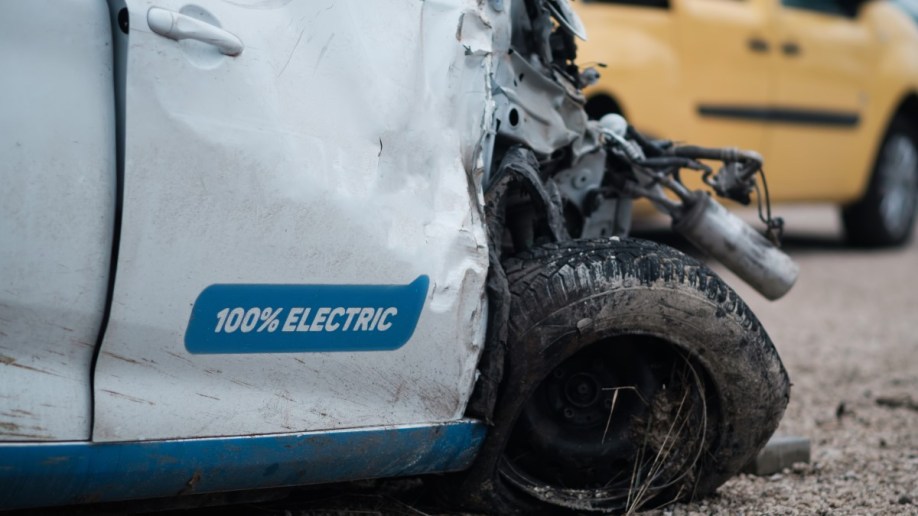
Related: Insurers Are Writing Off Lightly-Damaged Teslas
The Old Rules of Gas-Powered Cars Don’t Apply to EVs
The battery is by far the most expensive component of an electric vehicle. It’s made up of dozens or even hundreds of small battery cells, usually housed together in a single sealed package. With many EV designs, Reuters reports, “there is no way to repair or assess even slightly damaged battery packs after accidents.”
There’s no truly equivalent part in a gasoline-powered car. A new engine is expensive. But millions of auto mechanics around the world know how to replace the parts of an engine. So, a minor accident rarely damages an engine so badly that the entire unit needs replacement.
When an EV battery takes minor damage, however, repairing it is sometimes out of the question.
Some automakers like Ford and General Motors “have made battery packs easier to repair,” Reuters explains. Technicians can sometimes replace individual cells or place the working ones in a new casing for less than the cost of a new battery.
But Tesla “has taken the opposite tack” with its Texas-built Model Y, whose new structural battery pack has been described by experts as having “zero repairability,” Reuters says.
“A Tesla structural battery pack is going straight to the grinder,” explains Sandy Munro, an engineer whose company tears down new cars and advises automakers on improving designs. Munro has become a prominent Tesla advocate on social media, we should note.
Insurance Premiums Going Up in Response
A new battery “can also cost tens of thousands of dollars, representing as much as 50% of an EV’s price tag. This also makes replacing batteries uneconomical,” explains Fox Business.
Related: Does It Cost More for Electric Car Insurance?
That has caused some insurance companies to charge higher premiums for EVs than for internal-combustion-powered cars, negating some of the cost savings consumers expect when switching from gasoline to less-expensive electricity for their transportation expenses.
A recent Forbes Advisor analysis found that the average EV policy now costs about $2,280 annually — about $130 more than the average policy for a gas-powered vehicle, as estimated by Nerd Wallet’s own insurance rate analysis for 2023. Insurance costs, however, can vary widely from state to state, making national comparisons of limited value.
Tesla has responded by launching its own insurance company. But the fundamental idea of insurance — to spread risk through diversification — can’t work well if the insured products aren’t diverse. A giant risk pool made entirely of expensive-to-repair cars is unlikely to bring down costs.
More modular battery designs might.
Reuters notes, “Most carmakers said their battery packs are repairable, though few seem willing to share access to battery data.”







